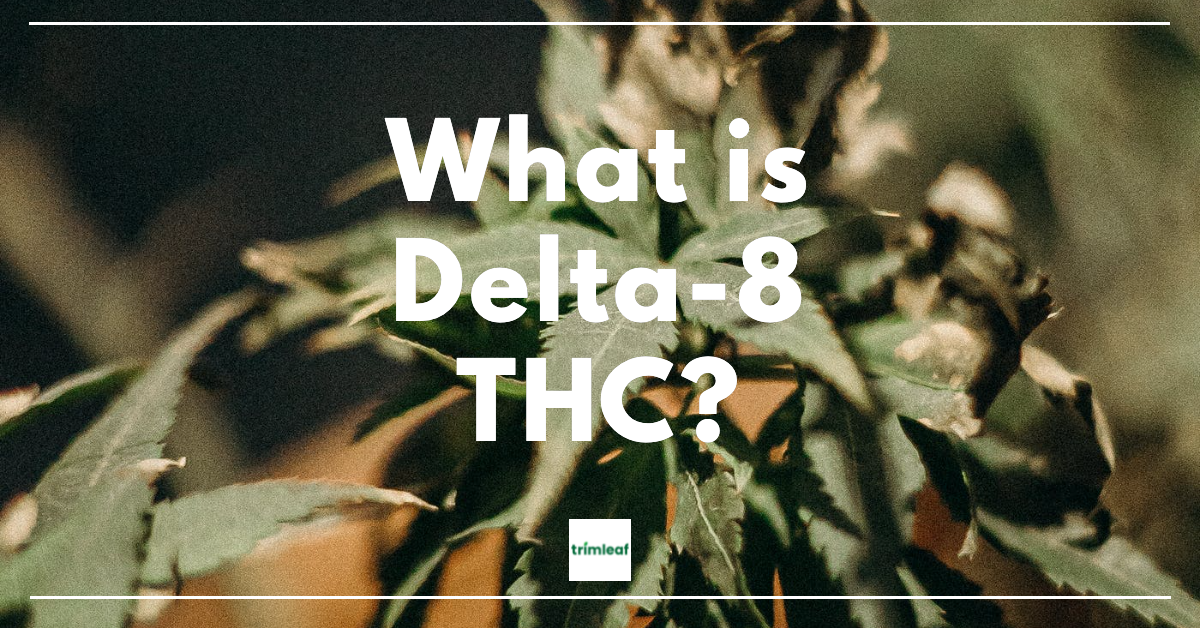
Delta-8 has been making waves as an alternative to the usual Delta-9 THC. And why is that? You see, Delta-8 offers that high, although at a condensed level. For places where THC is highly regulated, this is very much welcome, as laws on THC pertain to Delta-9, the more common THC.
But what’s there to expect with Delta-8? Is it a good alternative to Delta-9? Let’s dig deeper into its characteristics.

Delta-8 THC vs from Delta-9 THC
In a nutshell, Delta-8 THC has tamer effects than the traditional Delta-9 THC has. While it can get you high, the effects won’t be as strong as what Delta-9 offers.
Delta-8 also has a different chemical structure, although both have a double bond, which gives that high when consumed. Delta-8 has the double bond in the eight carbon chain, while Delta 9 has its double bond on the ninth.
Some claim that the position of the double bond is the reason why Delta-8 has a lower intoxicating effect, but this has yet to be confirmed, considering that more studies are needed to assess how the human body reacts to it.
Does Delta-8 THC have any psychoactive effects?
Delta-8 THC has psychoactive effects, but it’s not as high as what you can get from Delta-9. Some cannabis consumers tend to lean towards this type of THC, as it offers a suave high, compared to Delta-9. It’s tamer and won’t cause more negative effects, such as anxiety or paranoia.
In states where Delta-9 is outlawed, consumers have turned to Delta-8 to get their fix.
That brings us to the table the legality of Delta-8.
Is Delta-8 THC legal?

Delta-8’s legality treads on a grey area. For one, Delta-8 can be derived from hemp or cannabis. And with legislation, such as the 2018 Farm Bill, Delta-8 becomes legal where Delta-9 is not.
But there are also local laws that outlaw THC, which refers to the Delta-9 version. Delta-8, also considered as THC, is on the fence that makes its legality questionable based on the definition of the law. That is why people who want THC while in states where it’s illegal to seek Delta-8, even with its lack of potency. Some compensate for the lack of effects by consuming more. It’s because of this definition that more people are seeking Delta-8, thus growers extracting more of it.
How is Delta-8 THC derived?
Delta-8 THC is usually found in small amounts in cannabis and hemp. With hemp being legal to grow in the US, it’s become the more common source for Delta-8 THC processors.
The extraction starts with the CBD from hemp, from which it’s turned into an isolate. From here, the isolate gets synthesized and becomes Delta-8. Delta-8 THC needs more processing to be derived and at the same cost more to get. But given its effects, and its indefinite legality, the demand is quite high and makes it worth the effort for some to produce.
Does Delta-8 THC have any benefits?

Delta-8 THC has benefits such as pain relief and can also help those with insomnia. These benefits are pretty much the same as what you get with Delta-9, but at a lower intensity.
If you want something with better medicinal effects, go for CBD, although it does not have the psychoactive effect that Delta-8 has. And, of course, it also has side effects, which don’t differ from Delta-9. You get a dry mouth, red eyes, and induced appetite, paranoia, and anxiety. But as pointed earlier, the overall effect of Delta-8 is research in progress. That said, it would be interesting to know later on if Delta-8 would be a reliable substitute for Delta-9, especially in places where it’s prohibited.
How much weaker is Delta-8 THC
Delta-8 THC might be weaker than Delta-9 THC, but if you’re looking to start consuming THC, the former may still come out strong, although the mileage may vary per person.
Now, if you’re looking to use Delta-8 THC but want to get the same high, it would be good to note that its potency is less than half of what Delta-9 THC has. To give you an idea with more tangible figures, THC gummies are made as 10 mg gummies. Delta-8 THC gummies, meanwhile, are produced as 25 mg gummies to get a similar effect as the 10 mg gummies. That said, the potency of Delta-8 THC is roughly 40 percent of Delta-9 THC.
How to consume Delta-8 THC
The possibilities are almost endless when consuming Delta-8.
To start, you can extract them for rosin, although there would be low quantities. As a remedy, some producers spray Delta-8 distillate on the bud before pressing to increase the concentrations. This solution gives you more CBD, terpenes, and cannabinoids than usual.

You also use Delta-8 for gummies, as many do. For those into vaping, you can also make vape juice with it. And you can make concentrates with them, too.
But before you jump into making these, remember that Delta-8 is still a form of THC and needs to be converted from THCa through decarboxylation.
Decarboxylation heats your hemp to dry up the THCa. There are different ways of doing it, ranging from infusing it directly with an herbal infuser or by heating them to a particular temperature that’s enough to dry up the THCa.
Closing Thoughts
Delta-8 THC seems very promising, especially for those who live in states that have stringent laws on THC levels. And even in more lenient places, Delta-8 is also a good option for those who want the high on a tempered level. But as researchers continue to unlock the mysteries behind Delta-8, it remains to be seen how this form of THC will change the cannabis industry. And with more research, regulators will be able to make an informed decision as to whether Delta-8 should be regulated or let go easy.



